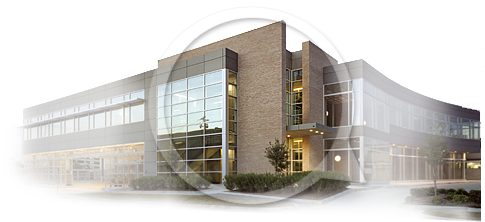North Carolina Commercial Loans
- Free one minute form, No SSN required
- Receive up to 4 competitive rate offers in minutes
- Construction, SBA, and bridge loans
- For Business or Investment
- 100% unsecured loans available

Get a Loan Takes 60 secs
Securing a commercial loan in North Carolina
A commercial loan in North Carolina is your ticket to financing property for your business or investment portfolio.
Commercial Real Estate Loan Types
There are many different types of commercial loans. The type depends on the purpose of the property being purchased. A commercial loan could finance a hotel or motel, light industrial building, marina, apartment building, auto services building, bed-and-breakfast, mixed use property, mobile home park, multi-family unit, office, campground or RV park, convenience store, gas station, health care center, retail space, self storage compound, warehouse, or restaurant. Here are some of the most common types:
Traditional Purchase Loan
Purchase loans have fixed or adjustable rates, much like a residential mortgage. Interest rates are contingent on loan-to-value ratio, or LTV, and the property is used as collateral. There is some relative flexibility where credit and income is concerned with traditional commercial purchase loans.
Bridge Loan
Outstanding credit and high, steady income is often required for bridge loans, since they offer immediate capital on the short-term - typically one year - to suit a commercial project's beginnings, often from a private lender. Longer term financing should be pending while these short-term funds are borrowed.
Participating Mortgage
Most used among lasting retailers and stable offices, the participating mortgageholder gives the lender a cut of the business or real estate revenue along with interest and principal payments every month.
Hard Money
Usually offered by private lenders because of their substandard requirements, hard money loans carry unusually high interest rates since they are particularly high risk. The property serves as the collateral for financing.
Commercial Loan Requirements
Credit and NOI
Commercial loans typically have strict credit and debt requirements, although the spectrum is wide thanks to the flexibility many private lenders offer. To have a credit (FICO) score of 700 or higher is ideal, but certainly many commercial loans have been approved for borrowers with credit in the 680 to 700 range. There is hope for borrowers whose credit is even lower, but lenders will look for compensating factors, such as a high net operating income (NOI), which should surpass the monthly mortgage by at least 25%.
Debt Service Coverage
Another factor lenders will examine is borrower debt service coverage, which is a ratio of the yearly net operating income over the mortgage payment. Businesses should have a debt service ratio of over 1.25, as determined by a licensed appraiser's estimates.
Debt Yield Ratio
Lenders will also consider a commercial loan borrower's debt yield ratio, which is their NOI divided by the total mortgage loan. A business with an NOI of $500,000 per year and a prospective loan amount of $7,000,000 will have a debt yield ratio of 0.0714, or 7.14%, meaning even if the property is foreclosed out the gate, the lender will receive a 7.14% return.
North Carolina Commercial Loan Lenders
Commercial lenders, whether for small business, hard money or others can be difficult to find. Lender411 has a number of commercial lenders in its directory. Find one near you by filling out the form at the top of this page.
North Carolina is friendly to businesses, and if you want to pick up a loan to help you kick start your latest business idea or business expansion, you shouldn’t have any trouble. Contact a North Carolina commercial mortgage lender to discuss your options. The largest cities in North Carolina that see the most business development are Charlotte, Raleigh, Greensboro, and Durham.
North Carolina Small Business Loan Resources
The U.S. Small Business Administration, or SBA, offers affordable financing opportunities to help small businesses grow. The North Carolina SBA District Office is located in Charlotte. Generally, small business owners can finance their endeavors in two ways: equity or debt financing.
Equity Financing
Small business owners can receive funds through equity financing without acquiring debt. In exchange for ownership share, another company raises funds for the recipient. The SBA recommends business owners take the equity financing route if their business has a high debt to equity ratio; that is, if they have borrowed for their business more than they have invested.
Debt Financing
For the opposite case - a business owner has a high equity to debt ratio - debt financing is a safe option, and recommended by the SBA. Debt financing is the borrowing of money from a lending institution or private lender, to be repaid over time, and usually with interest. The allowable loan amount, length of repayment term, and interest rate will vary depending on the lender.
Help Through SBA
Your local SBA office may be able to offer aid through the Financial Assistance Program. Eligibility depends on several factors, although special considerations may be made for franchises, farms, medical facilities and more. Here are the basic criteria for eligible companies:
- Must be for-profit.
- Must be operating within the United States and territories.
- Must have a reasonable owner equity for investment.
- Must seek other funding sources including personal assets before seeking SBA's help.
To see if you qualify for special considerations, contact the North Carolina SBA District Office: 704-344-6563.
About North Carolina Business
North Carolina is the fastest growing state in the nation. North Carolina has always been known as a textile state, but as more jobs are being transferred overseas, the textile manufacturing plants have been closing slowly. This has led to a regeneration of North Carolina’s economy as other types of businesses move in.
Although the textile industry is losing jobs, North Carolina is still the leading producer of tobacco in the country. Fortunately, North Carolina has grown to become a national leader in agriculture, financial services, and manufacturing instead of depending on its old economy of textile and tobacco. Charlotte is now the second largest banking center in the United States, and is home to Bank of America and Wachovia.
Charlotte is the largest city in North Carolina and has been dominated by financial services and other retail mercantilism. Other Fortune 500 companies located in Charlotte include Duke Energy, Goodrich Corporation, and Wachovia. Charlotte is also home to the U.S. motorsport industry. If you are interested in owning a commercial property in North Carolina, Lender411 can help you find the best commercial mortgage rates.
Join Lender411
Are you a mortgage or real estate professional?


